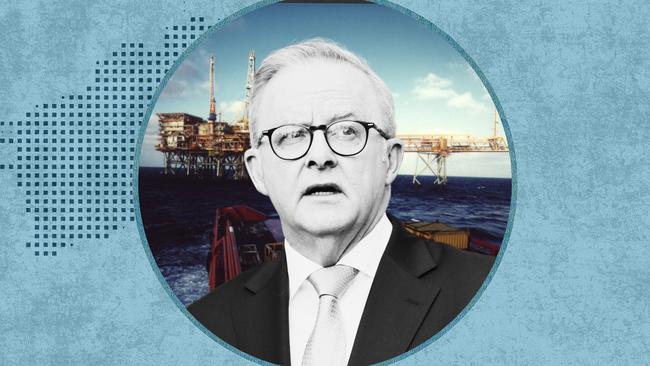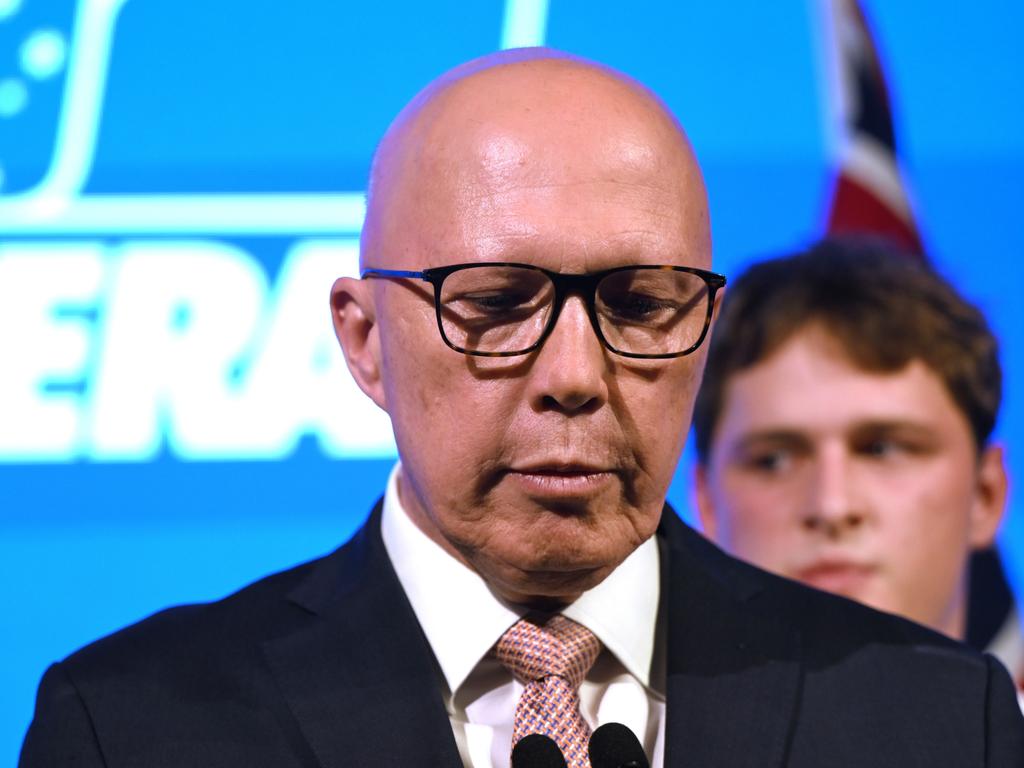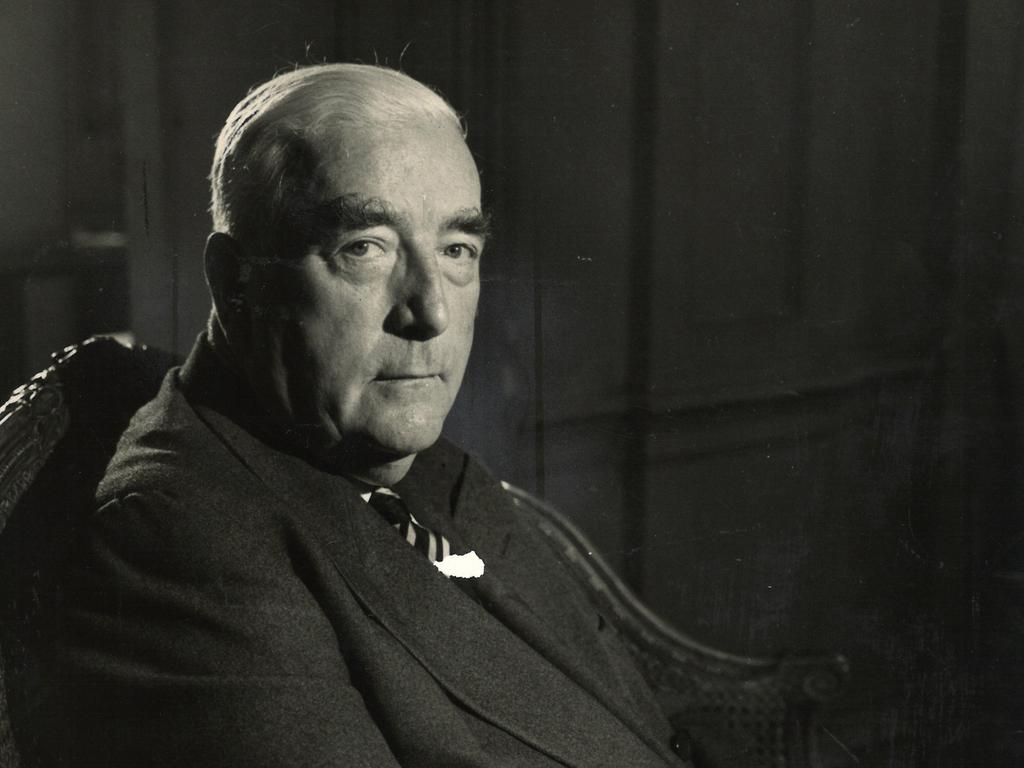
The ABC’s Sarah Ferguson did her level best to extract a straight answer from the Prime Minister in response to a straight question last week.
Would Anthony Albanese’s proposed environmental protection agency have the power to decide whether mining projects go ahead, she asked.
The Prime Minister went into an evasive ramble about sitting down with “sensible people across the spectrum”, prompting Ferguson to interrupt.
“So, have you decided yet on whether that body will have the power to approve projects?”
It prompted yet another shifty response, which is troubling since the only acceptable answer to that question is “no”.
Putting an environmental watchdog in charge of development decisions is like giving Alcoholics Anonymous the job of issuing liquor licences. The conflict between regulator and enabler is unavoidable.
Yet the Prime Minister wants us to believe he still hasn’t made up his mind, which is disturbing, to say the least, considering his government is about to decide on a significant project that will determine the future of the natural gas sector in the North West Shelf.
Heaven help us if a project so important is left in the hands of an environmental regulator.
In August 2024 it emerged that the West Australian Environmental Protection Authority had declared the project to be an unacceptable environmental risk. The decision was inevitable since the EPA’s job is narrowly prescribed under legislation to protect “living things, their physical, biological and social surroundings”.
It is not the regulator’s job to make trade-offs between protecting nature and human prosperity. That is the government’s role, which is why the WA parliament wisely decided the WA EPA’s role was merely to offer advice.
Today, governments are expected to yield to experts on everything from the management of pandemics to development decisions.
Back in August 2024, Guardian Australia assumed the authority’s decision meant game over. “EPA deals ‘major blow’ to Woodside’s multibillion-dollar gas drilling plan at Browse Basin”, its headline read.
Further down in the story, the “major blow” quote is attributed to Jess Beckerling, at the time executive director of the Conservation Council of Western Australia. “It is now incumbent on the WA and federal governments to respect this independent scientific advice and expert opinion and refuse Woodside’s application to develop Browse,” she said.
WA Premier Roger Cook should have slapped down this nonsense right away and reminded the EPA and the Guardian that he was wearing the trousers.
Instead, he said his government was “obviously in deep discussions” with the EPA experts to “mitigate against any negative impacts on the environment”.
The EPA’s conclusion took six years to arrive at, and even then it took a journalist’s Freedom of Information application to make it public. No wonder resource investors are tempted to leave Australia.
Orica chief executive Sanjeev Gandhi told Sky News on Sunday: “Given a choice, my incremental dollar would always go first to the United States. They are pro-manufacturing, they are pro-mining, they are for infrastructure.”
The Prime Minister should have dispersed the cloud of sovereign risk by flying to WA to stand beside Cook and give the project his unqualified support as Bob Hawke did in September 1989 when he stood alongside Labor premier Peter Dowding for the inauguration of the North West Shelf project.
Hawke compared it to the Snowy Mountain scheme, predicting that the new industry would foster Australian jobs and Australian exports into the 21st century.
The hype was justified. Three decades later, the North West Shelf accounted for more than 55 per cent of Australia’s liquefied natural gas exports and supplied roughly 12 per cent of global LNG trade.
It has attracted close to $200bn in investment, much of it from overseas. Hundreds of billions of dollars have been added to our GDP. Together with the iron and coal exports boom, it has underpinned 30 years of unbroken growth in prosperity.
The Browse project will unlock one of the largest untapped gas reserves in Australia and extend the life of the North West Shelf for at least 50 years, increasing opportunity and prosperity for future generations.
Yet Labor is deeply ambivalent towards gas.
It has reluctantly accepted that its renewable energy ambitions cannot be achieved without substantial support from gas generation, at least in the medium term. Yet there is little concrete support for the industry.
Labor’s commanding victory has given Albanese the opportunity to regain control of environmental and energy policy and redress the balance between an abstract concern for the planet’s future and a real concern about the future of Australian prosperity.
It gives him the freedom to consider the nation’s long-term needs, as Hawke did, rather than saving his political skin beyond the three-year political cycle.
He must begin by entrusting the environment and energy portfolios to new hands.
Climate Change and Energy Minister Chris Bowen has not delivered the cheaper energy he promised and Australia’s emissions reductions have flatlined at about 29 per cent below the 2005 level.
Renewable energy is barely 30 per cent of the mix in the national electricity market, and we are no less reliant on coal than we were in 2022.
The sooner the government concedes that it will not meet its 2030 target of reducing emissions by 43 per cent and producing 82 per cent carbon-free electricity, the sooner it can develop a plan B. No one should hold their breath.
Labor’s delayed decision on its 2035 target is due any day and its response on the Browse Basin is overdue.
The Coalition will be doing a great disservice if it lessens the scrutiny of the second-term Albanese government in these crucial first few months by making itself the story.
The depleted partyroom cannot afford to expend energy on factional warfare that it needs to use to fight the government.
It must quickly accept its failure to win government and take on the second most important role a party has in parliament as an effective opposition.
Nick Cater is a senior fellow at Menzies Research Centre.






